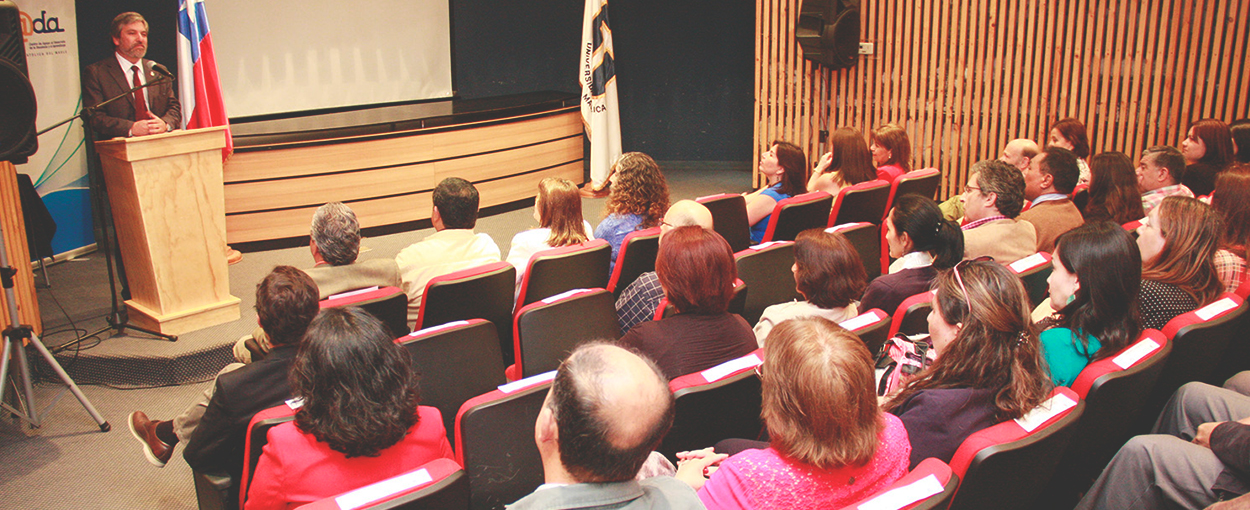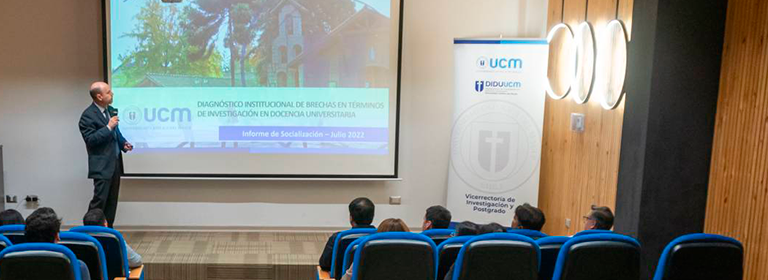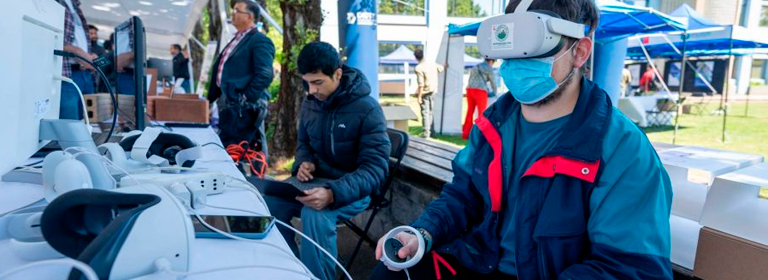Dr. Mary Carmen Jarur Muñoz, InES Project Director and UCM academic
 In the framework of International Women’s Day, reflecting on science and gender equity acquires a fundamental relevance. Even more so when the academic year begins, and hundreds of young people, many of them first generation university students in their families, enter higher education with the hope of building a better future.
In the framework of International Women’s Day, reflecting on science and gender equity acquires a fundamental relevance. Even more so when the academic year begins, and hundreds of young people, many of them first generation university students in their families, enter higher education with the hope of building a better future.
Universities, such as the Universidad Católica del Maule (UCM), have the responsibility to train professionals with an inclusive vision, generating opportunities that contribute to eradicate gender inequalities. However, addressing this challenge requires a comprehensive and deep look, where intersectionality is presented as a key approach to understand and transform reality.
In this context, UCM has proposed the creation of a Gender in Science Observatory, an initiative supported by the National Agency for Research and Development (ANID) through the Innovation in Higher Education (INES) program. This observatory will analyze and diagnose the particularities of the territory, the reality of the university trajectory of both students and academic staff, identifying the factors that directly impact the gender gap that currently exists in the development of research, innovation and technology transfer; a reality that not only occurs in our region but also at the national level.
Beyond the diagnosis, this space seeks to generate quantitative and qualitative data and information that contribute to improve conditions within the university and serve as input for the formulation of public policies with regional and national impact.
Our region is characterized by an important rural component, and from the point of view of employment, a level of informality higher than the national average, and growing in the last 4 years. The challenge is great, but our conviction is even greater. We want the Observatory called ADA, in honor of the mathematician Ada Byron, to become a lighthouse that, from science, knowledge and social commitment, illuminates and guides the way towards a fairer and more inclusive society for all.













